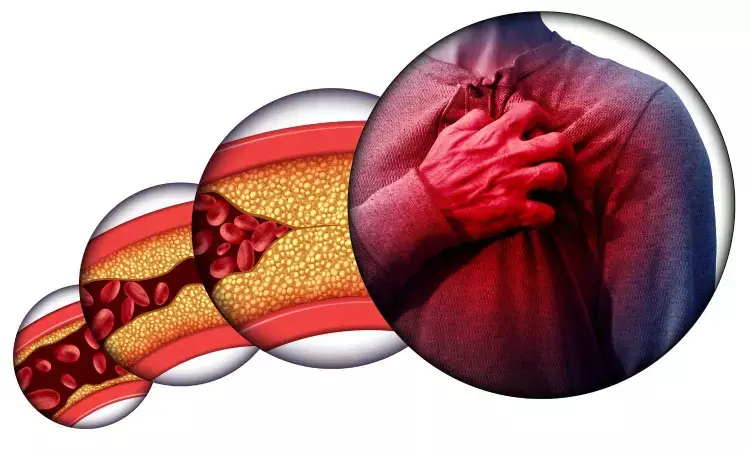- Home
- Medical news & Guidelines
- Anesthesiology
- Cardiology and CTVS
- Critical Care
- Dentistry
- Dermatology
- Diabetes and Endocrinology
- ENT
- Gastroenterology
- Medicine
- Nephrology
- Neurology
- Obstretics-Gynaecology
- Oncology
- Ophthalmology
- Orthopaedics
- Pediatrics-Neonatology
- Psychiatry
- Pulmonology
- Radiology
- Surgery
- Urology
- Laboratory Medicine
- Diet
- Nursing
- Paramedical
- Physiotherapy
- Health news
- Fact Check
- Bone Health Fact Check
- Brain Health Fact Check
- Cancer Related Fact Check
- Child Care Fact Check
- Dental and oral health fact check
- Diabetes and metabolic health fact check
- Diet and Nutrition Fact Check
- Eye and ENT Care Fact Check
- Fitness fact check
- Gut health fact check
- Heart health fact check
- Kidney health fact check
- Medical education fact check
- Men's health fact check
- Respiratory fact check
- Skin and hair care fact check
- Vaccine and Immunization fact check
- Women's health fact check
- AYUSH
- State News
- Andaman and Nicobar Islands
- Andhra Pradesh
- Arunachal Pradesh
- Assam
- Bihar
- Chandigarh
- Chattisgarh
- Dadra and Nagar Haveli
- Daman and Diu
- Delhi
- Goa
- Gujarat
- Haryana
- Himachal Pradesh
- Jammu & Kashmir
- Jharkhand
- Karnataka
- Kerala
- Ladakh
- Lakshadweep
- Madhya Pradesh
- Maharashtra
- Manipur
- Meghalaya
- Mizoram
- Nagaland
- Odisha
- Puducherry
- Punjab
- Rajasthan
- Sikkim
- Tamil Nadu
- Telangana
- Tripura
- Uttar Pradesh
- Uttrakhand
- West Bengal
- Medical Education
- Industry
CTI Linked to Higher Mortality in People with Both Heart Disease and Type 2 Diabetes: Study

China: A newly published study reveals that elevated levels of the C-reactive protein-triglyceride-glucose index (CTI) are significantly associated with an increased risk of both all-cause and cardiovascular mortality in individuals with coexisting coronary heart disease (CHD) and type 2 diabetes mellitus (T2DM). The findings, based on nationally representative data, point to CTI as a promising biomarker for identifying high-risk patients who may benefit from closer monitoring and targeted interventions.
The research, led by Dr. Chunmei Qi from the Department of Cardiology at The Second Affiliated Hospital of Xuzhou Medical University in China, was published in Scientific Reports. The study used data from 759 adults participating in the U.S. National Health and Nutrition Examination Survey (NHANES) between 1999 and 2010. Participants had diagnoses of both CHD and T2DM and were followed for mortality outcomes through December 2019.
CTI, a composite marker that reflects systemic inflammation and insulin resistance, was calculated for all participants and divided into quartiles. The study employed several analytical methods—including Kaplan-Meier survival curves, Cox proportional hazards models, and restricted cubic spline (RCS) analysis—to investigate how CTI levels correlated with mortality outcomes.
The study revealed the following findings:
- During a median follow-up period of over nine years, 520 participants died from all causes, while 213 deaths were attributed specifically to cardiovascular conditions.
- Higher CTI levels were significantly linked to an increased risk of both all-cause and cardiovascular mortality.
- Fully adjusted hazard ratios were 1.68 for all-cause mortality and 1.70 for cardiovascular mortality, indicating a strong association.
- Restricted cubic spline (RCS) analysis confirmed a clear linear dose-response relationship between CTI levels and mortality risk.
- These associations remained consistent across various clinical subgroups, underscoring the reliability of CTI as a prognostic marker.
- The mortality risk associated with elevated CTI was even more pronounced in younger patients and those with HbA1c levels below 7%, suggesting greater vulnerability in these groups.
- CTI also showed strong correlations with multiple metabolic and inflammatory biomarkers, supporting its use as a comprehensive indicator of cardiometabolic risk.
Despite the study’s strengths, the authors acknowledged several limitations. These include the observational design, reliance on self-reported health conditions, and the lack of repeated CTI measurements over time. Furthermore, since NHANES primarily represents the U.S. population, the results may not be fully generalizable to other regions or ethnic groups.
The researchers concluded, "The study suggests that CTI could serve as a valuable biomarker for risk stratification in patients managing both CHD and T2DM. The authors call for further prospective research to validate CTI’s clinical utility and explore whether interventions guided by this index can help improve long-term outcomes in this vulnerable population."
Reference:
Reference:
Tang, N., Chen, X., Li, H., Cheng, S., Hu, Y., Wang, L., Zhou, Q., Zhang, Q., Hao, J., & Qi, C. (2025). Association of C reactive protein triglyceride glucose index with mortality in coronary heart disease and type 2 diabetes from NHANES data. Scientific Reports, 15(1), 1-11. https://doi.org/10.1038/s41598-025-10184-x
Dr Prem Aggarwal, (MD Medicine, DNB Medicine, DNB Cardiology) is a Cardiologist by profession and also the Co-founder and Chairman of Medical Dialogues. He focuses on news and perspectives about cardiology, and medicine related developments at Medical Dialogues. He can be reached out at drprem@medicaldialogues.in


